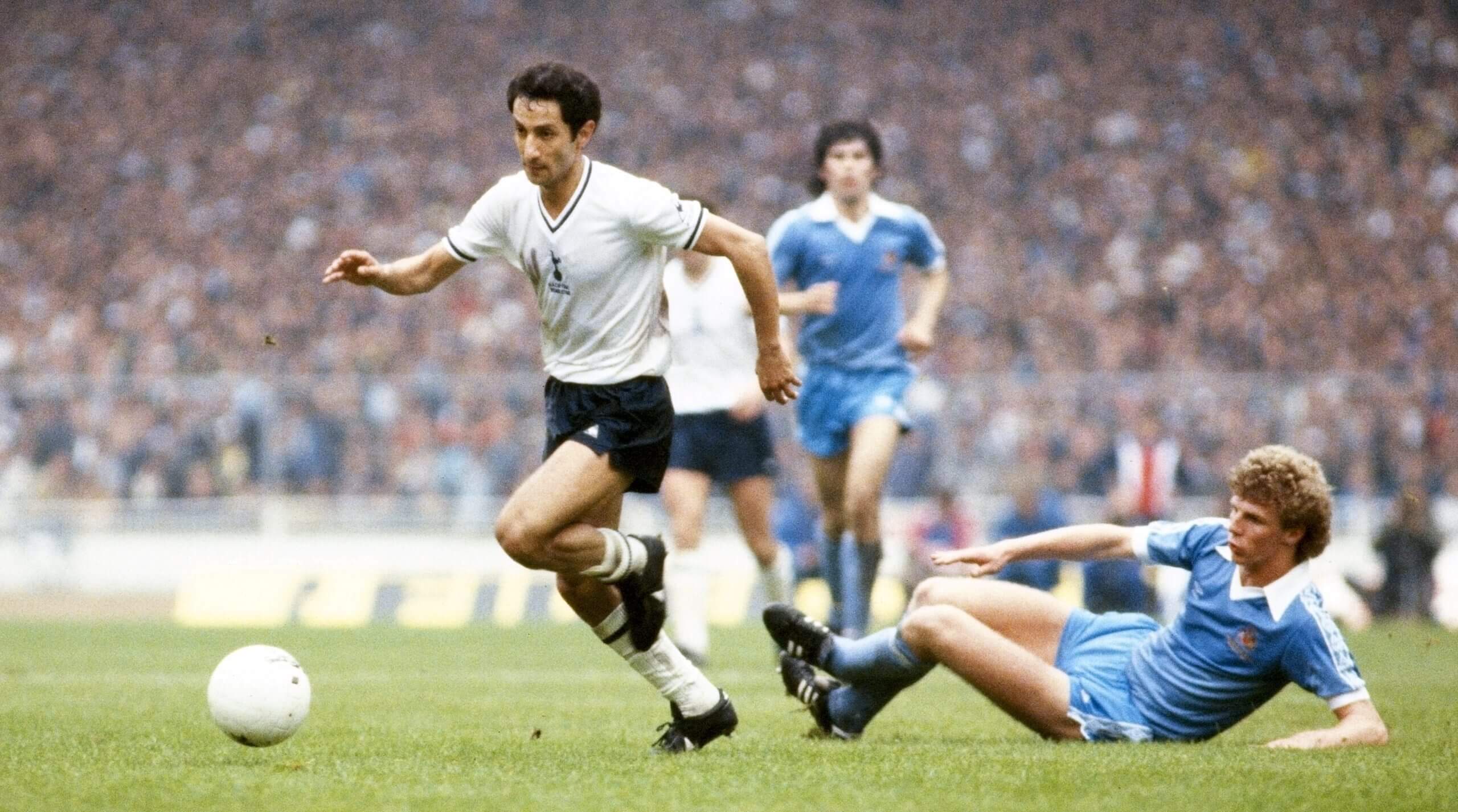
Last weekend, Pep Guardiola spent 15 minutes standing on the Goodison Park turf, long before his Manchester City players came out for their pre-game warm-up.
“I remember when I was a little boy,” he said later of Goodison, ahead of Everton’s move to their new home at Bramley-Moore Dock this summer. “Today, I watched the (stadium big) screen with goals from Gary Lineker and said, ‘Wow, this is English football’.”
Advertisement
In Spanish, Guardiola might be known as a “mitomano” — somebody quick to idolise, generally, a person. In his case, it is footballers, but also stadiums and competitions.
He would watch English football on television when he was a youngster in the Catalan town of Santpedor. Not that many games were available on television in the 1970s and 1980s, but he obviously saw enough for some core memories to form.
“Historically, they played that way in England partly because of the state of the pitches,” he told authors Lu Martin and The Athletic’s Pol Bollus for their book, Pep’s City: The Making of a Superteam. “They were so bad that you couldn’t really do anything else. They didn’t play on grass, just mud baths.”
English teams would be on TV back then, but only when they played a European Cup game against a Spanish side. In fact, there was only one game from England guaranteed to be on Spanish television every season: the FA Cup final.
“The FA Cup final was always played at the old Wembley Stadium and that became the iconic image of English football for us,” Guardiola says in the same book. “You’d sit there in front of the TV and dream.”

City taking on Tottenham in the 1981 FA Cup final, when Guardiola was 10 years old (Duncan Raban/Allsport/Getty Images)
The FA Cup has its own place in British football folklore, with the former tradition of full-day television coverage of the showpiece occasion each May, tales of historic finals past, the rarity of guaranteed sunshine on the day and, of course, Wembley itself, old or new.
It is hard to believe that anybody growing up outside England could experience that mysticism for themselves in quite the same way, but with its particular place in Spain’s TV schedule, it is easier to understand somebody as football-mad as Guardiola falling in love with it.
“My memories of English football are watching the FA Cup final, not the Premier League or Champions League,” Guardiola said ahead of City’s semi-final against Chelsea at Wembley last April. “In Spain, we could see the English final — the tradition, everything so nice.”
Another time, he recalled: “The tradition there with the two managers going out (leading their teams onto the pitch), I loved that.”
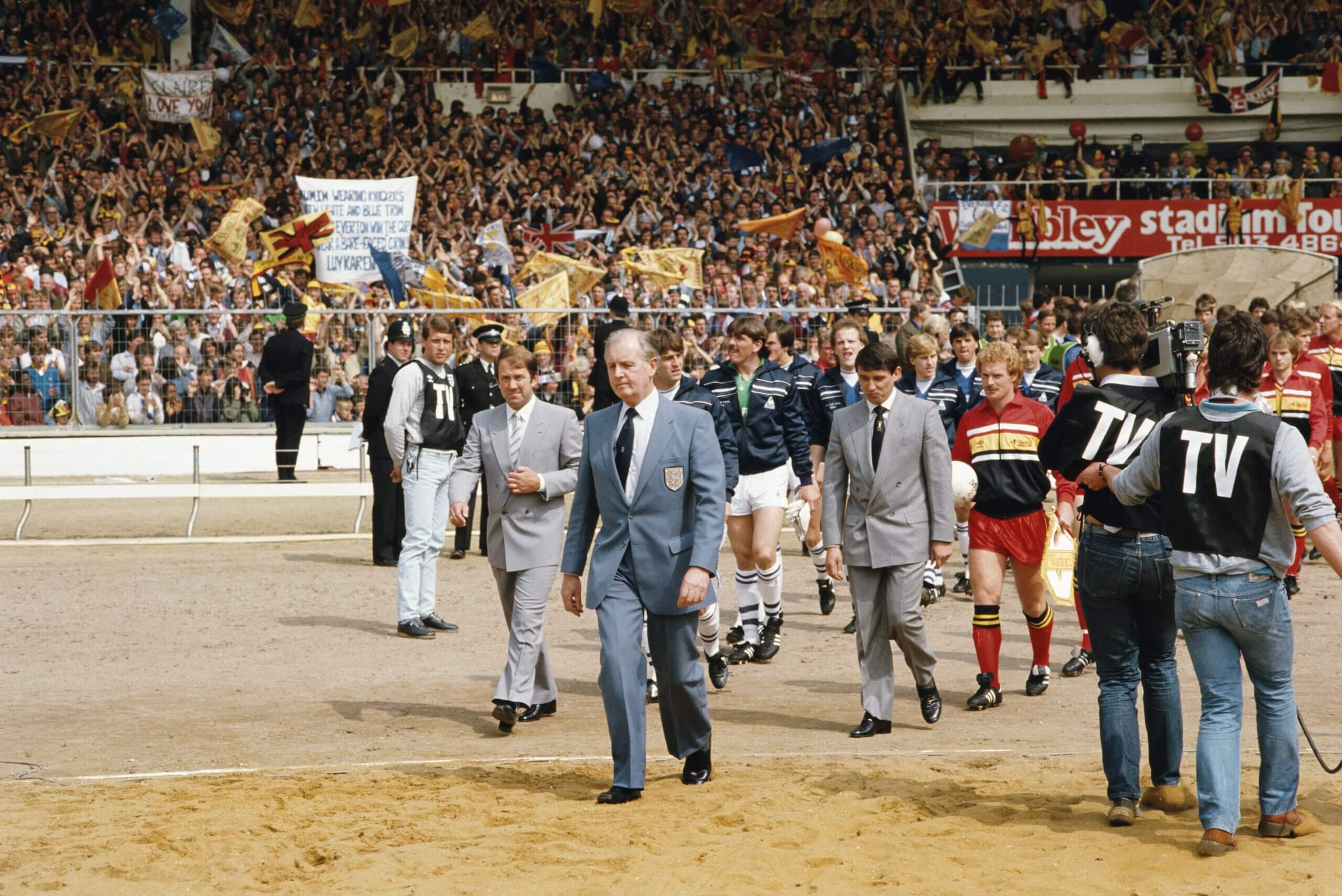
Managers Howard Kendall and Graham Taylor lead out Everton and Watford for the 1984 FA Cup final. Was a 13-year-old Guardiola watching from Spain? (David Cannon/ Allsport/Getty Images)
It will be the same story for generations of people across Spain, but none of them would be able to garnish those memories by experiencing Wembley for themselves in the way Guardiola has gone on to do.
“I love being at Wembley,” he said, ahead of that semi-final 12 months ago. “I won two Champions League titles here with Barcelona — once as a player in 1992 when we defeated Sampdoria, and once as a manager in 2011 when we beat Manchester United — and, of course, with City, I have been here many, many times.
Advertisement
“I can say honestly it is always special to me and those memories will never, ever fade.”
Both of those Champions Leagues with Barca have a greater significance than ‘just’ the trophy itself: that 1992 triumph at the old Wembley was not just then midfielder Guardiola’s first but Barcelona’s as a club, and then their fourth 19 years later cemented the team he managed as one of the greatest of all time.
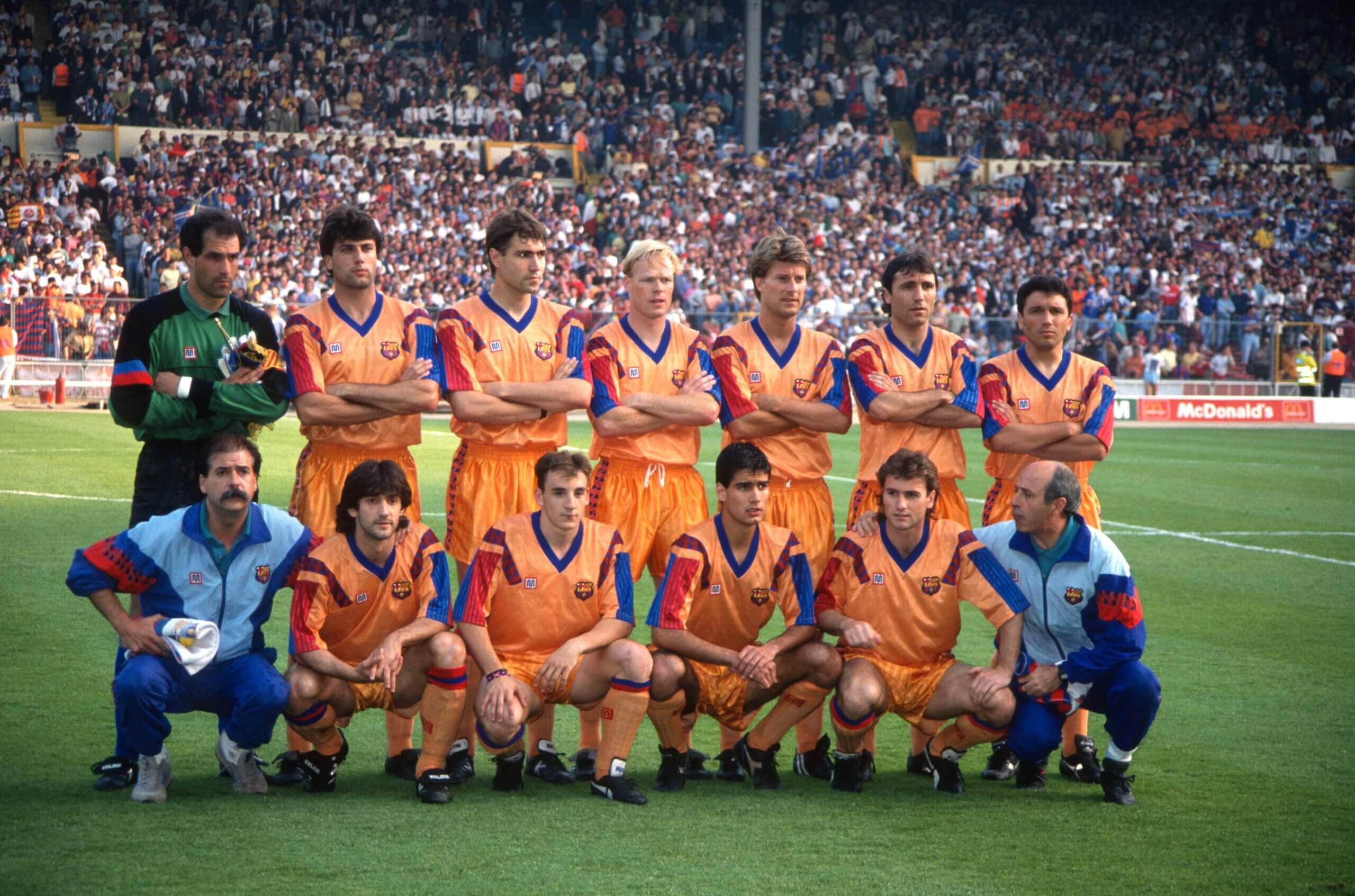
Guardiola (front row, third right) and Barcelona before the 1992 European Cup final (Mark Leech/Offside via Getty Images)
“There were a lot of people waiting for us to screw it up again,” Johan Cruyff’s assistant, Charly Rexach, said of the significance of that victory over Sampdoria. “The feeling was that another life starts. We were released.”
Come the 2011 final, Guardiola was asked about the prospect of his players surpassing the achievements of that 1990s side, known as the Dream Team, by winning their second Champions League in three years. “We can never compete with the Dream Team… they started this,” he said on the eve of that meeting with United at the rebuilt Wembley.
“We hope we can be proud in the future, that in the next five, 10 or 15 years, people will remember this team and say, ‘One time I saw this team…’ It’s like a great film, only with the passing of time can you know if a film is good, and it’s the same with us.”
It is fair to say that Guardiola’s Barcelona achieved that, and their most famous single game would have been that final, beating Sir Alex Ferguson’s United 3-1. “They are the best team we have ever played,” Ferguson said afterwards.
“The way we won is what I’m most proud of,” Guardiola said, “this is how I want to play football.”
Beyond how Barca dismantled United on the pitch, it was a night when the players threw Guardiola up in the air in celebration, danced under the water from the Wembley sprinklers and when captain Carles Puyol handed the armband to team-mate Eric Abidal, who had undergone a liver transplant just three months earlier, allowing him to lift the trophy.
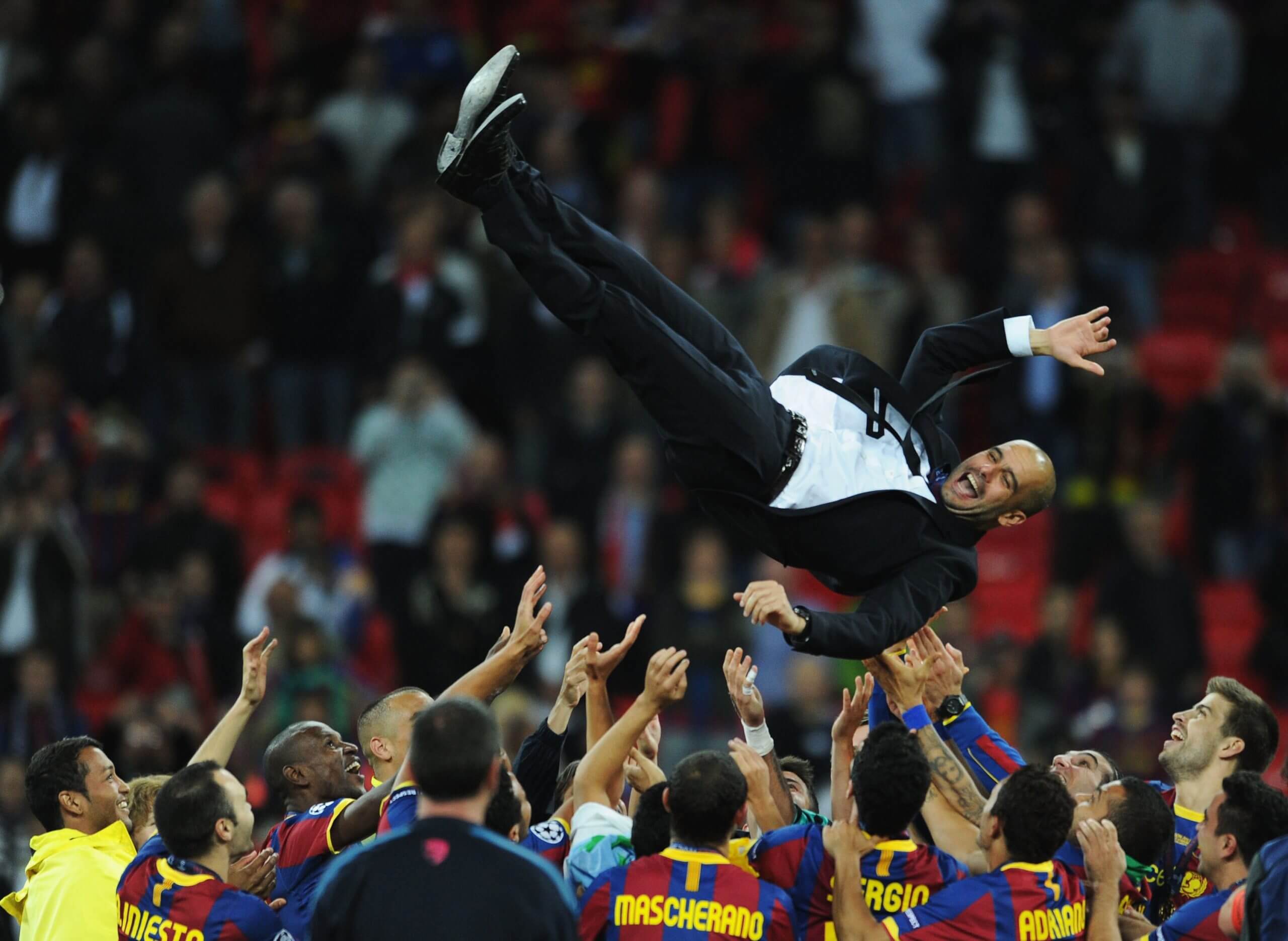
Guardiola and his Barcelona team after the 2011 Champions League final at Wembley (Jasper Juinen/Getty Images)
These are unforgettable milestones in Guardiola’s career as both a player and manager, and indeed as a person.
During the past nine seasons as City manager, he has added many more on top; Sunday’s FA Cup semi-final against Nottingham Forest will be (excluding two league fixtures against a temporarily relocated Tottenham) the 20th time he has taken them to Wembley.
Advertisement
It is a run that includes five Community Shields, four Carabao Cup finals, six FA Cup semis and four FA Cup finals. This meeting with Forest will be City’s seventh FA Cup semi-final in a row — an English football record and something that Guardiola is extremely proud of.
Guardiola’s first trip to the competition’s last four, though, turned out to be one of his lowest moments as City manager. A 2-1 extra-time defeat to Arsenal in April 2017 ensured he would go trophyless in a season for the first time in his senior coaching career. He had genuinely feared the sack a few months earlier, only weeks into his tenure, and after losing to Arsenal, he felt he had not delivered what the club expected of him, that he had let them down.
But before he had even left Wembley that day, he was reassured by chairman Khaldoon Al Mubarak that they would back him all the way and invest in the squad that summer to support his plans. It was the first time that Guardiola felt he owed something to the City hierarchy.
The next time he took the club to Wembley 10 months later, they won the Carabao Cup (by beating Arsenal) — the first of four consecutive such trophies and the first of his 18 overall. Later that year, City lifted the Community Shield, the first of four domestic trophies they won in the 2018-19 season, becoming the first team in English football history to do so. Three of those, of course, were clinched at Wembley.
“To be 10 months, play in all competitions, and to be the first, it means we have been consistent every few days for 10 months. I love the Champions League, but to do that is more difficult than to win the Champions League,” Guardiola said afterwards.
A few years later, City combined that consistency with winning the Champions League, clinching a glorious treble in the 2022-23 season.
The final weeks of that season passed by so quickly and manically that details — big and small — all got rolled together, but Guardiola’s tears after City beat Manchester United 2-1 in the FA Cup final were one of the rawest displays of emotion of his whole tenure.
Advertisement
It was as if the enormity of what City were achieving had dawned on him: whenever he had been asked about the prospect of completing the treble, he had always said that he would only answer the question when they were one game away. That reality arrived with victory over United at Wembley, thanks to Ilkay Gundogan’s double, the first of which came after just 13 seconds, itself a scarcely believable moment looking back now.
“Last June, when we beat Manchester United here to win the FA Cup, it was one of the greatest days of my career,” he said ahead of City’s semi-final in 2024. “It was hard to take in everything after the game because the emotion was so high. But looking back, it means so much to me.”
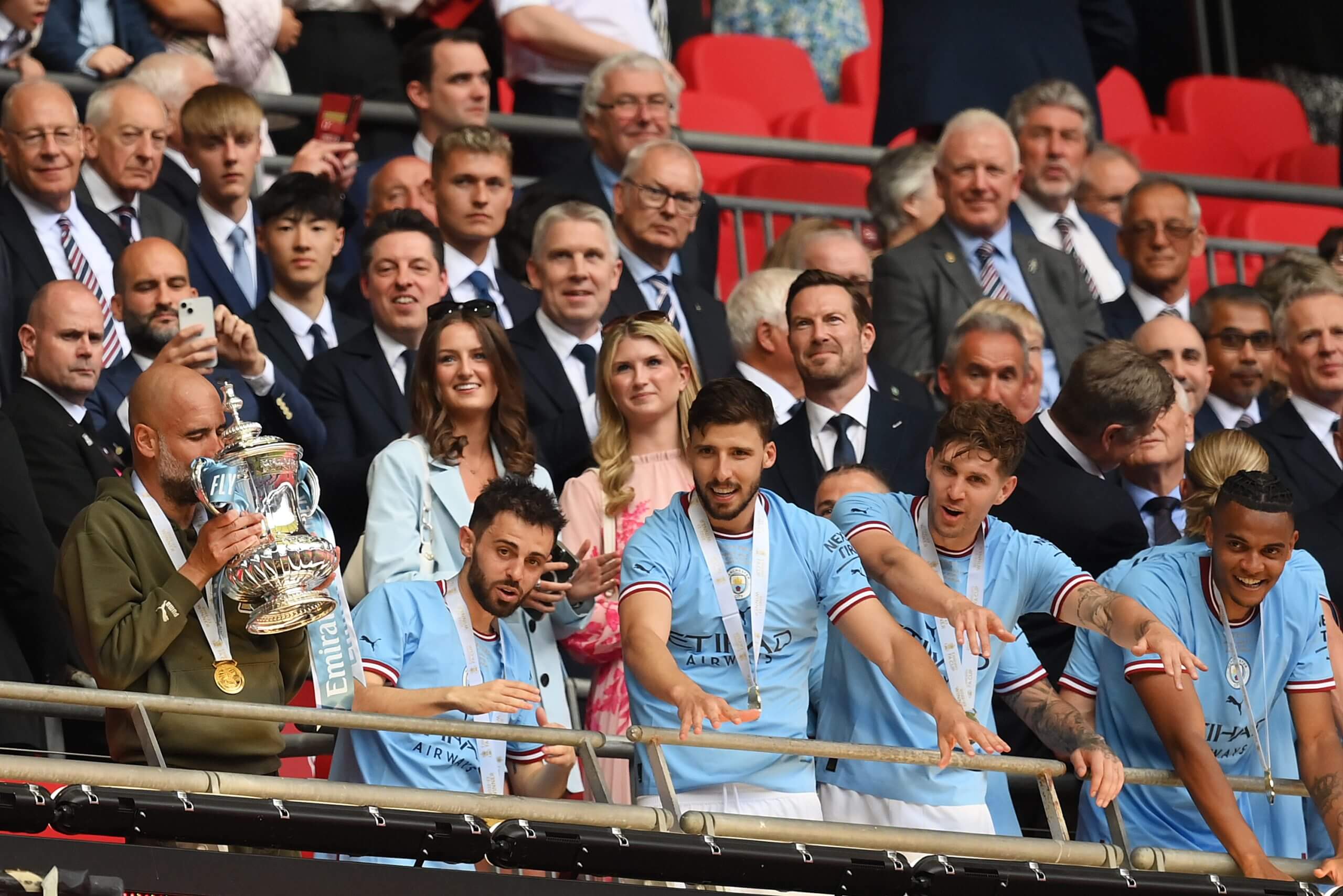
Guardiola lifts the FA Cup at Wembley after the 2023 final (Shaun Botterill/Getty Images)
He joined in the players’ celebratory huddle after full time, slotting in between Erling Haaland and Ruben Dias, before urging the players over to the City fans at the other end of the pitch. It was also the night when Guardiola bumped into one of his musical idols, Sir Elton John, at Manchester airport, to add a surreal element to the evening.
Things were not so smooth a year on: City lost to United in a repeat of that 2023 final and footage emerged months later of Guardiola rising to the bait of a gloating supporter outside his apartment building back in Manchester, having to be held back by security. Guardiola once said that his players were too hungover for that match, having clinched their fourth Premier League title in a row days earlier. He then clarified that he was joking, although he has referred to the hangover again several times since.
Had things turned out differently this season, the upcoming semi-final and possible final could well have been Guardiola’s last trips to Wembley as City’s manager. Sources say that last summer, he was strongly considering an offer from the FA to replace Gareth Southgate in the England job.
In the event, he committed two more years to City, partly because of his determination to get them out of the rut they fell into last November.
Whatever happens against Forest tomorrow, you get the feeling that it will not be Guardiola’s final visit to that storied corner of north-west London.
(Photos: Getty Images; design: Eamonn Dalton)
This news was originally published on this post .






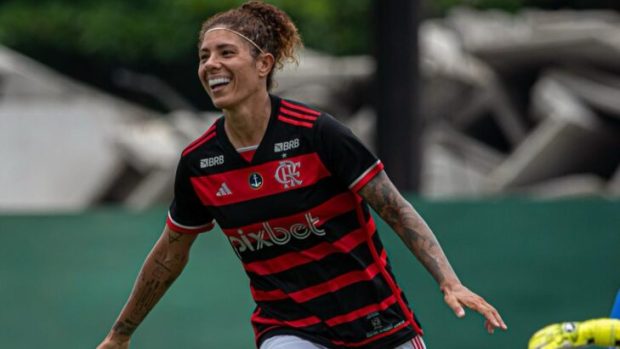

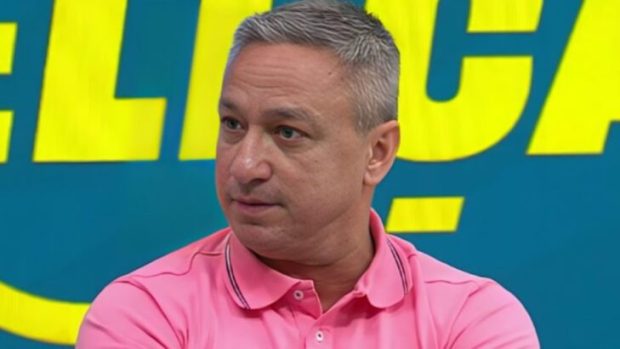
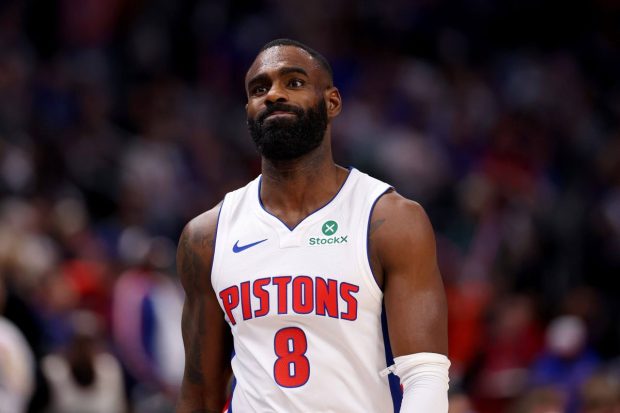
Be the first to leave a comment